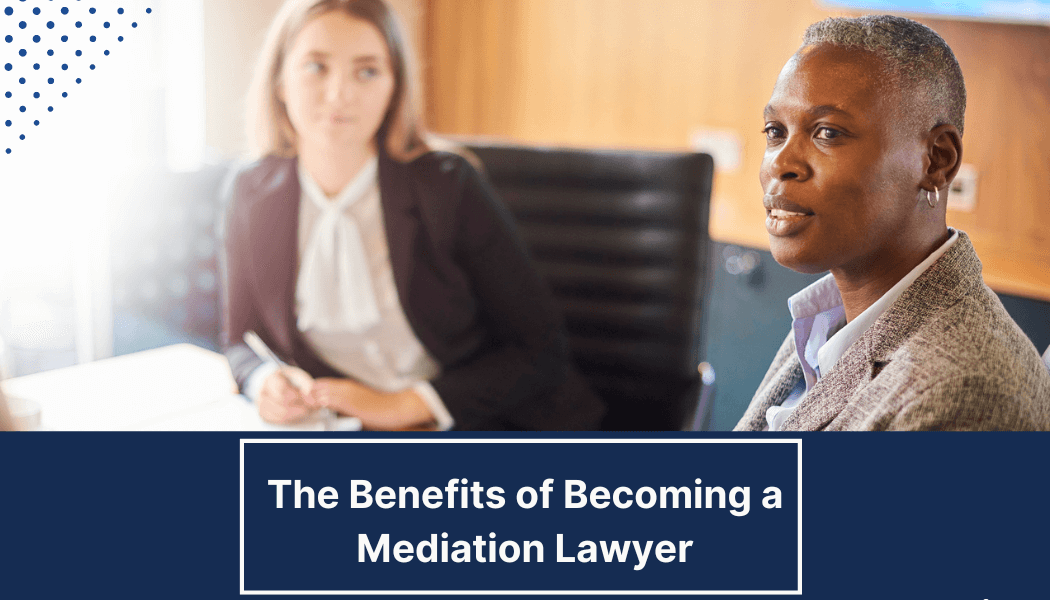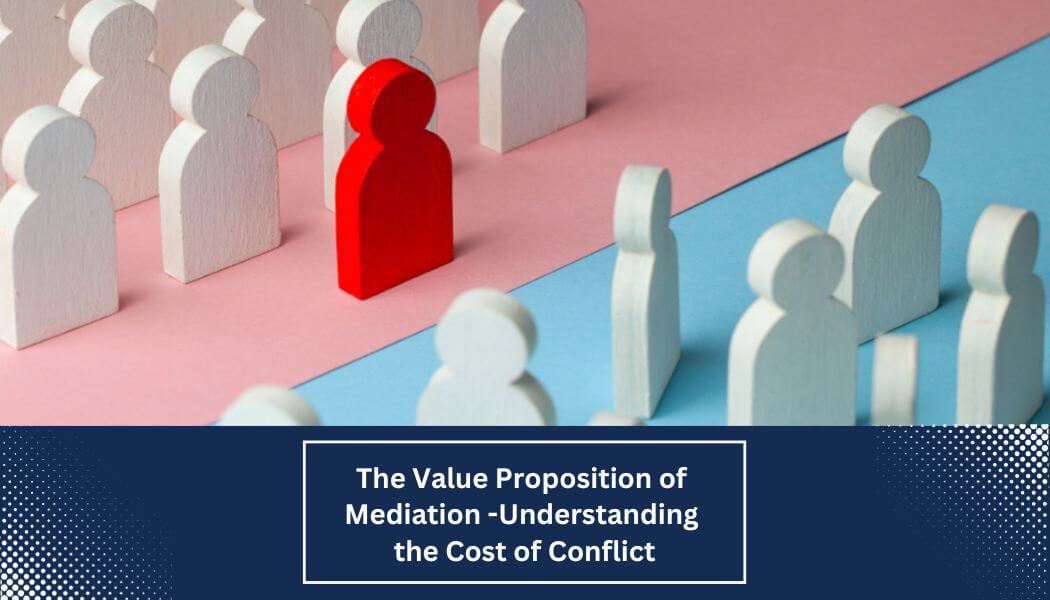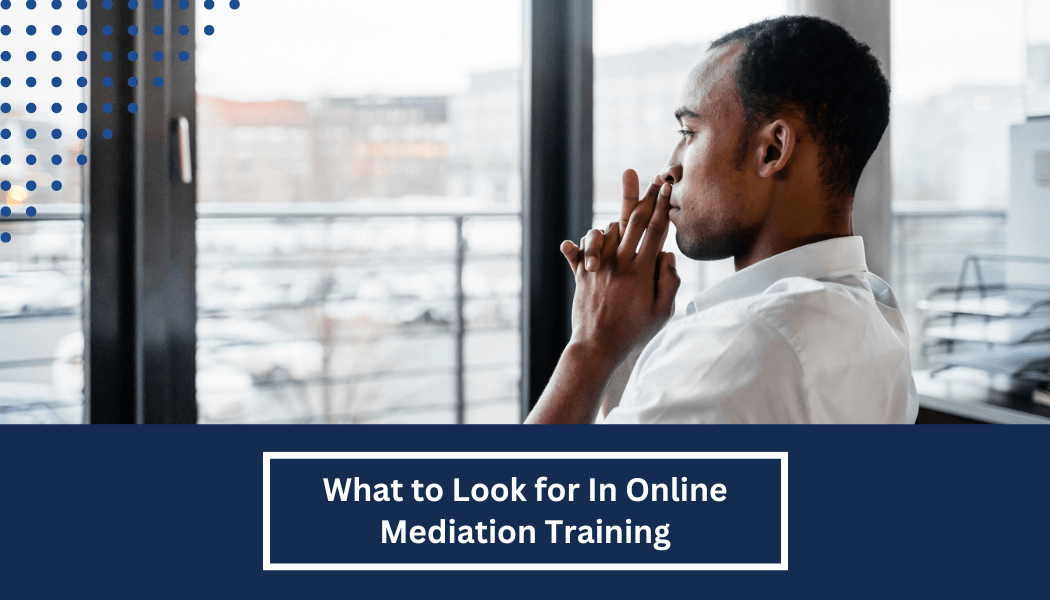Why do litigators need to become better mediation lawyers?
Even though the number of civil cases that are resolved through mediation (and other forms of alternative dispute resolution) has soared, and the cases that end in a jury trial have drastically declined, not many litigators have acquired the skills needed to be effective mediation lawyers. In fact, over the past thirty years, one of the untold secrets among the mediation community is that the quality of mediation advocacy – the ability of a lawyer to present and argue a client’s position, needs, and interests in a non-adversarial way in mediation– generally ranges from fair to poor.
It’s no wonder when you consider that formal mediation advocacy training has been predominantly overlooked. What training that does exist is primarily experiential, “on-the-job” learning. While there are moments of creative thinking and strategic behavior in mediation, there are many missed opportunities when evaluating mediation advocacy and a real need for litigation advocates to become better mediation lawyers.
My friend and colleague, Daniel Weinstein, said it best when he observed, “In a world in which less than 1% of cases end in verdicts, it is surprising that lawyers prepare elaborately for a trial that will never occur, yet feel that the only preparation required for mediation is a good night’s sleep.”
I often ask myself, “Why didn’t this advocate prepare differently for this critical moment when they have the undivided attention of the decision-makers on the other side?
Why can’t this advocate visualize the impact of their message or approach on the other party down the hall?”
Like many other mediators, I spend too much precious time guiding advocates through challenges that they have predominantly created themselves.
What is a Mediation Lawyer?
A mediation lawyer, sometimes referred to in the profession as a mediation advocate, should not be confused with an attorney-mediator. A mediation lawyer is a licensed attorney who has received mediation skills training and, better yet, who has received training on how to represent clients in mediation.
Not only are they familiar with the nuances of the mediation process, but they have acquired unique skills for navigating the potential pitfalls that can get in the way of achieving the best outcome for their clients. A good mediation lawyer is supportive of the mediation process and is ideally suited to represent their clients in the mediation environment.
An attorney-mediator, on the other hand, is a lawyer skilled in mediation who acts as a neutral third party for facilitating discussions and negotiations during mediation. Because many attorney mediators have legal experience representing clients in court for the same kinds of disputes that they are mediating, they have acquired a good understanding of the issues at play and valuable insight for helping parties reach agreement.
Role of the Lawyer in Mediation
Unlike a neutral mediator who facilitates discussions and guides both parties through the mediation process, a mediation attorney acts as counsel for their client and provides legal advice. They help their client understand their legal rights and the strengths and weaknesses of their position and can fashion an argument based on the strengths.
During mediation sessions, a skilled mediation lawyer will advocate for their client, keep the negotiations on point, and advise their client about the benefits or drawbacks of a potential settlement agreement. And when parties are unable to reach a mutually acceptable agreement, a mediation lawyer is in a good position to suggest other legal solutions.
Mediation Advocacy Training for Lawyers is a Crucial Step
Although mediation has developed and grown over the past several decades in the U.S., attorney education has remained primarily focused on litigation advocacy. Yet, alternative dispute resolution is here to stay.
Mediation advocacy training for lawyers is now a crucial step toward developing the broadest range of skills to help clients resolve conflicts and achieve winning results outside of court. In other words, to be truly successful, a lawyer must be able to achieve effective settlements that advance the client’s interests in the most cost-effective and timely manner. Mediation has proven itself for being one of the best ways to do that.
For too long, litigation advocacy and mediation advocacy have been viewed by many as a binary choice: you were a skilled advocate in one, but not both. This choice is a false dichotomy. Litigation advocates must pursue, with equal vigor, the essential skills required to develop mediation competency and become effective mediation lawyers. From civil disputes to commercial disputes to family law or child custody disputes, developing mediation advocacy skills can help lawyers represent the best interests of their clients in mediation and achieve winning results.
What Skills Define an Effective Mediation Lawyer?
While there are complementary and sometimes overlapping skills needed for both mediation advocacy and litigation advocacy, there are distinctly different skills that serve the mediation advocate in contrast to those that serve the litigation advocate. Effective mediation attorneys need to develop skills in active listening, empathy, patience, and emotional intelligence, as well as how to be flexible and creative in fashioning ways to support and meet the client’s needs in the mediation session.
Effective Mediation Lawyers Understand the Uniqueness of the Mediation Process
I’m fond of telling mediators and lawyers alike that the real danger in life lies in not knowing what you don’t know. For many individuals in the world of mediation, this statement couldn’t be more indicative of the challenges we face.
When we pull back the curtain on mediation advocacy, most attorneys quickly appreciate both the uniqueness of the mediation process and the importance of the skills required for not only serving in an advocacy role for their client but for engaging successfully with the mediator, opposing counsel, and the other people involved in the mediation.
Embracing Mediation Through Better Understanding
There is another compelling reason to provide mediation advocacy training for attorneys, one that is especially critical in emerging mediation markets: achieving acceptance of the practice itself. Thinking back to my early years of promoting mediation here in the U.S., attorneys were the most important stakeholder group to engage, while they also put up the most resistance.
Fast forward to recent times. As I teach mediators and assist governments in other countries to successfully implement mediation in their judicial systems, I’ve come full circle. I’m again confronted by attorneys who resist mediation based on their fear of the unknown, economic uncertainty, or other reasons. Their resistance impedes acceptance of a culture of mediation in their communities.
New Career Trajectory for Mediation Lawyers
Assisting local mediators in engaging these attorneys through mediation advocacy training may be the best way to break down their resistance. Mediation advocacy training offers attorneys the opportunity to reimagine their career trajectories. By embracing mediation through better understanding and then building mediation advocacy skills, mediation lawyers can separate themselves from their peers and deliver winning results for their clients.
Expanding Mediation Advocacy Training Abroad
Earlier this year, in our ongoing efforts to support the development of the mediation community in Rwanda, we offered our first training on mediation advocacy for attorneys. Working closely with the Rwandan Bar Association, we addressed over seventy-five attorneys, educating them on the mediation process and specific skills in mediation advocacy. The result was overwhelmingly positive.
We are looking toward replicating this experience in the months ahead, working with attorneys in India, Brazil, and Zambia.
The Need to Formalize and Institutionalize Mediation Advocacy Training
At Edwards Mediation Academy, we believe that the long-term success of mediation in the United States and other parts of the world depends on the acceptance of mediation, as well as building the attendant skills of mediation advocacy. In pursuit of this goal, it’s simply not enough to let learning evolve organically through “on-the-job” experience.
Instead, we must formalize and institutionalize mediation advocacy training for lawyers around the world if we hope to prepare the mediators of tomorrow. Too many lawyers sit comfortably in the doldrums, waiting for the winds to change. Acquiring the skills to become better mediation lawyers will help them learn to adjust their sails and catch the winds of opportunity.










